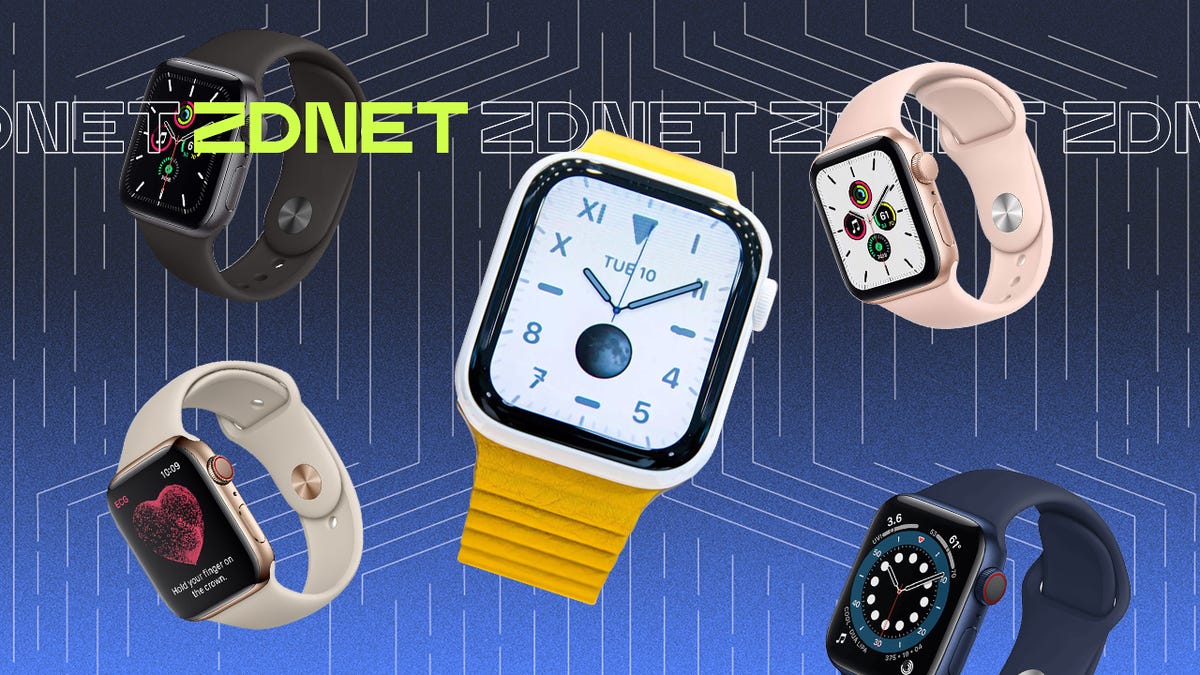
33 years of experience
30 hands-on product reviewers
10,000 square feet of lab space
Today's state-of-the-art drones do more than just capture stunning aerial photos and video. Many boast advanced features like autonomous flight modes and obstacle avoidance systems. What was once the stuff of science fiction is now a reality, highlighting the incredible strides made in drone innovation. Whether you're a hobbyist, a tech enthusiast, or someone whose job requires them to take photos from above (engineer or realtor, for example), drones are fast becoming a must-have.
Also: The best surveillance drones of 2024
With over a decade of experience in drone piloting, I've honed my skills across the UK, Europe, and the US, backed by essential drone licenses and certifications. My qualifications include an A2 Certificate of Competency alongside a General Visual Line of Sight Certificate, underscoring my commitment and expertise in this dynamic field.
Throughout countless flight hours, I've piloted many drones, from massive models to compact ones, mastering every size in between. For me, drone flying is more than just a hobby; it's a professional passion that allows me to capture the world's beauty from extraordinary perspectives. Whether day or night, I've had the privilege of exploring and photographing some of the most breathtaking locations around the globe.
What is the best drone you can buy right now?
After rigorously testing the leading drones on the market, the DJI Mavic 3 Pro has emerged as the best overall choice. This top-tier drone excels with ultra-high-definition recording capabilities, superior frame rates, bitrate, and color capture abilities, along with outstanding flight performance and impressive battery longevity. Equipped with a trio of cameras, it can produce cinematic videos and stunning photographs in skilled hands.
The DJI Mavic 3 Pro's advanced flight safety features significantly minimize the risk of loss, ensuring users can capture the perfect shot every time.
Understanding that different users have diverse needs and preferences, I've also compiled a selection of top drones that vary in size, weight, and price point based on extensive personal testing. This variety ensures there's a drone to meet the specific needs and budgets of every enthusiast.
The best drones of 2024
DJI Mavic 3 Pro
Best drone overall
This is DJI's flagship consumer/prosumer drone. It's big, it's mean, it's noisy, it has three cameras, and is the perfect drone to get the job done. If the conditions will let you fly a drone, the Mavic 3 Pro will deliver.
The Mavic 3 Pro features a 1/1.3-inch CMOS sensor, 3x optical zoom, and is capable of 48MP/12MP photos, 4K/60fps video, and supports the new D-log M.
Review: DJI Mavic 3 Pro
On top of that, the wide-angle camera now also supports the new 10-bit D-Log M color mode, allowing the sensor to capture up to one billion colors. This not only makes the camera better at capturing difficult scenes such as sunrises and sunsets but also makes it easier to process the captured video.
In terms of drones that you can pack away and carry in a bag, this is the most stable, most capable, and most powerful drone that I've ever flown. Yes, as with all drones, it takes some getting used to, and it takes time to understand the strengths and weaknesses of the three cameras. But once you master this drone, you have an incredibly powerful platform for capturing unique photo and video shots.
Users also echo my feelings about this drone. Over on Amazon, 84% of those who rated it gave it five stars, with reviews packed with praise for this drone's cinematic output and powerful features.
DJI Mavic 3 Pro tech specs: Camera: 1/1.3-inch CMOS, 70mm equivalent, 3x Optical Zoom, f/2.8, 48 MP and a 1/2-inch CMOS Tele Camera 166mm equivalent, 7x Optical Zoom, 28x Hybrid Zoom, f/3.4, 12 MP | Video: 4K/60fps | Max flight time: 43 minutes | Transmission distance: up to 15km
Show Expert Take Show less
DJI Air 3S
Best mid-range drone
For those looking for an enthusiast-level drone with prosumer features, you need to look no further than the Air 3S.
Like its predecessor, this drone has two cameras, but these have been tuned so they have the same video specs and color modes, which greatly improves capture in high-contrast situations and ensures visually consistent footage no matter which camera you use. This makes stitching footage from the different cameras easier.
Review: DJI Air 3S
The omnidirectional obstacle sensing is a feature that could help save your drone from damage or destruction. While I'd never rely on these sensors, and always keep an eye on where the drone is and its surroundings, it's a super handy feature that makes flying safer. The Air 3S also adds a LiDAR system for safer night flying.
This drone also adds another cool new feature -- 42GB of built-in storage. For some, this will be a handy backup to microSD card storage, for others it will eliminate the need for microSD cards completely.
DJI Air 3S tech specs: Camera: 1-inch CMOS, 50MP effective pixels, 24 mm format equivalent, f/1.8 aperture, and 1/1.3-inch CMOS, 48MP effective pixels, 70 mm format equivalent, f/2.8 aperture | Video: 4K: 3840×2160@24/25/30/48/50/60/120 fps | Max flight time: 45 minutes | Transmission distance: 20km
Show Expert Take Show less
DJI Avata 2 FPV
Best flying action camera drone
The new DJI Avata 2 FPV (First-Person View) drone has completely flipped the script for me, taking what was previously quite a calming--meditative, even--activity and turning it into a crazy, white-knuckle ride. Within moments of donning on the goggles and sending the Avata 2 on its first full-speed run I felt like Wile E. Coyote, strapped to an ACME rocket, engaged in a desperate life-or-death chase after the Road Runner.
Also: I tested DJI's new Avata 2 and it's the fastest, most immersive drone I've ever flown
Everything in the kit is exactly what I've come to expect from DJI -- top-tier quality. The drone itself feels sturdy, which was a bit of a surprise since it's not much heavier than DJI's sub-250-gram ultralight drones. The prop guards seem like they can take a hit or two, and yeah, I had to put that to the test.
However, it's important to note this is an FPV drone. So, if you're aiming to capture cinematic footage or doing detailed shots of buildings for a realtor, this might not be the best choice. Think of it more as a flying action camera than a traditional one. That distinction really shapes the kind of results you can expect from it.
DJI Avata 2 tech specs: Camera: 1/1.3-inch 12-mm wide-angle camera | Video: 4K 60fps max video recording | Max flight time: 24 minutes | Transmission distance: 13km
Show Expert Take Show less
DJI Mini 4 Pro
Best drone for budding professionals
This is an upgraded version of the Mini 3 Pro, with a redesigned chassis, upgraded camera, and the addition of omnidirectional obstacle avoidance sensors.
The sub-250g category is important in some territories because it falls into an area where there are fewer regulation headaches. This is a big deal in places like Europe, less so in places like the US. It is also one of the quietest drones that I've flown, so if you're looking not to attract attention, this is the drone for you.
That said, the Mini 4 Pro is a very capable drone that you can slip into a pocket and take with you on your adventures. That's not something you could do with the Mavic 3 Pro!
User reviews for this drone on Amazon and Reddit praise its excellent image quality, how easy it is to fly, its performance, and its quality. This is a highly-rated drone.
DJI Mini 4 Pro tech specs: Camera: 1/1.3-inch 24-mm wide-angle camera | Video: 4K 100fps max video recording | Max flight time: 34 minutes | Transmission distance: 20km
Show Expert Take Show less
DJI Mini 3
Best budget drone
The DJI Mini 3 is a flying, stabilized 4K/12-megapixel camera with a theoretical range of 10km (way beyond what you should ever take it), and a rated flight time of 38 minutes with the included battery.
The standard kit comes with the DJI RC-N1 controller with no screen (you use your smartphone), but there's an option to upgrade to the DJI RC controller that has a built-in display that adds $140 to the price.
There's also a "Fly More Combo" option that adds two additional 38-min Intelligent Flight Batteries, a two-way charging hub, a shoulder bag, spare propellers, and a few other bits.
This drone gets rave reviews on Amazon for its ease of use, stability in flight, responsiveness, and the quality of the photos and videos it captures.
DJI Mini 3 tech specs: Camera: 1/1.3-inch CMOS, 12-megapixels | Video: 4K (3840×2160)@24/25/30 fps | Max flight time: 38 mins with Intelligent Flight Battery/51 mins with Intelligent Flight Battery Plus | Transmission distance: 10km
Show Expert Take Show less
DJI Mini 2 SE
Best cheapest drone you should buy
There are a lot of cheap drones out there, but they are toys rather than being tools to capture quality video and photos.
I understand that not everyone wants to spend $500 and above on a drone, but buying a cheap toy drone more often than not ends in disappointment, and this is why I'm reluctant to recommend them. This is why the Mini 2 SE is the cheapest drone I recommend.
The drone flies well, the camera is capable of good quality 2.7K video and 12-megapixel photos, and the stabilized gimbal is incredibly good at smoothing out vibrations from and movements.
Fantastic low-cost drone.
DJI Mini 2 SE tech specs: Camera: 1/2.3-inch CMOS, 24mm equivalent, f/2.8, 12 MP | Video: 2.7K/30fps | Max flight time: 31 minutes | Transmission distance: up to 10km
Show Expert Take Show less
DJI Neo
Best drone for social media content creators
The Neo is a compact, almost palm-sized drone, making it one of the most portable drones available. Palm-sized might be a bit of an exaggeration unless you have giant paws, but at first glance, the Neo looks more like a toy than a serious drone.
Weighing just 135 grams, it is significantly lighter than DJI's Mini series and even lighter than the Mavic 3 Pro. For context, it weighs 90 grams less than an iPhone 15 Pro Max.
Review: I tested DJI's smallest and lightest drone, and it's captured things I had never seen before
The DJ Neo is an enjoyable piece of equipment, and while I rarely use autonomous flight modes, many do, and the Neo excels in this area. You can capture stunning footage without a controller, making it perfect for the Instagram/TikTok crowd. The Neo is unique too in that its size allows it to venture into areas inaccessible to other drones, offering unique angles and shots.
Its pricing is also a game-changer: a 4K drone from a top manufacturer starting at just $199 for the basic kit, and $289 for the Combo pack with extra batteries and charger.
DJI Neo tech specs: Camera: 1/2-inch CMOS, 13mm equivalent, f/2.8, 12 MP | Video: 4K/30fps | Max flight time: 17 minutes | Transmission distance: up to 10km
Show Expert Take Show less
The DJI Mavic 3 Pro is ZDNET's top choice for its ultra-high definition recording, excellent frame rate, and long-lasting battery. The dual camera array is great for both aerial photography pros and newcomers alike, though the steep flight learning curve may be difficult for some beginners.
But, for the money, the new Air 3S is certainly compelling, and for all but the highest of high end pros, that drone will do everything they need, and more!!
Drone | Price | Obstacle avoidance | Camera resolution |
DJI Mavic 3 Pro | $2,771 | Omnidirectional | 5.1K |
DJI Air 3S | $1,099 | Omnidirectional + LiDAR | 4K |
DJI Avata 2 | $1,258 | No | 4K |
DJI Mini 4 Pro | $959 | Omnidirectional | 4K |
DJI Mini 3 | $549 | None | 4K |
DJI Mini 2 SE | $280 | None | 2.7K |
DJI Neo | $199 | None | 4K |
*Lowest price at the time of writing. Please note that prices may vary based on retailer and available promotions, sales, or discounts.
Whether you're into aerial photography as a hobby or a professional photographer or videographer looking to add something new to your list of services, drones are a great way to expand your skills. To help decide which drone best suits you and your lifestyle, use case, or what have you, consider the following:
Choose this drone… | If you want… |
DJI Mavic 3 Pro | The best prosumer/consumer drone available. It also has a wide-angle camera that supports the new 10-bit D-Log M color mode, allowing the sensor to capture up to one billion colors. |
DJI Air 3S | A highly-capable all-rounder that's more affordable than the Mavic 3 Pro. This is an enthusiast-level drone with prosumer features and even features a LiDAR sensor. |
DJI Avata 2 | Less of a traditional drone and more a flying action camera. This drone is less about silky smooth flying, and more about acrobatics and flying tricks. |
DJI Mini 4 Pro | A high-end drone that's super portable, or the best sub-250g drone available. It is a very capable drone that you can slip into a pocket and take with you on your adventures. |
DJI Mini 3 | A budget drone that doesn't compromise on camera quality. It has a rated flight time of 38 minutes with the included battery. |
DJI Mini 2 SE | The cheapest drone that I recommend. It has a great camera capable of capturing smooth 2.7K video, 12-megapixel photos, and rated flight time of 31 minutes. |
DJI Neo | The smallest, lightest drone about, and thanks to its compact size, maneuverability, and prop guards, it can get into places a regular drone can't. This drone can also be flown without a controller, making it perfect for those traveling light. |
Here are some factors I suggest you consider when choosing a drone:
- Purpose: Understand why you need the drone. Different drones are designed for various purposes, including aerial photography, videography, racing, surveillance, or just recreational flying.
- Camera quality: If you're interested in photography or videography, the quality of the onboard camera is crucial. Look at the resolution, frame rate, and whether the camera offers features like gimbal stabilization for smoother shots.
- Ease of use: Consider how easy the drone is to fly, especially if you're a beginner. Many drones come with features like automatic takeoff and landing, return to home, and obstacle avoidance, to make flying the drone safer and simpler.
- Regulations and restrictions:Be aware of local laws and regulations regarding drone flying in your area. Some places require drones to be registered, and there may be restrictions on where you can fly.
Size and Portability: If you plan to travel with your drone, consider its size and weight. Most consumer drones are designed to be portable, with foldable arms for easy transport, but can vary in weight from under 250 grams to close to a kilogram.
Price: Drones listed here can range from a few hundred dollars to several thousand dollars. Determine your budget and what features are most important to you within that budget.
I'm a licensed and insured drone operator, and rather than spending a bit of time reviewing these drones, I've put in many dozens of hours flying these drones, both for testing, flying for fun, and carrying out commercial work. Here are the factors I consider when I test a drone:
- Camera quality: Most of use are flying a drone to get some output, whether that be photos of potential damage to a roof, or cinematic output for a video project. The quality of the capture matters a lot.
- Ease of flying: I'm a competent drone pilot with a lot of experience, and one thing that experience has taught me is to spot the difference between a drone that's safe and easy to fly and one that is going to go into a wall, tree, or off and never be seen again! I like to get a good few hours with a drone before writing a review or recommending it.
- Durability: I've put these drones through their paces in many countries around the globe, flying them in cold weather, windy weather, and into the mouths of active volcanoes. I know what they are capable of, and these drones will deliver quality photos and video under even the toughest conditions.
- Obstacle avoidance: As well as testing the camera and flight characteristics, I've spent a lot of time testing the obstacle avoidance sensors. While I don't think that any drone operator should rely on these for day-to-day use, they're a handy safety feature in case things go wrong, and as such I like to test these features.
- Battery life: Are the flight time specs quoted by the manufacturers anywhere near to what you an expect in the real world?
- Price: I considered various DJI drone models at different price points that will be more budget-friendly or more high-end/enthusiast, depending on your skill level and what you are looking for.
Yes! Modern drones are really easy to fly.
That doesn't mean that there isn't a learning curve, and I highly recommend spending time learning to fly -- pick a large wide open area like a park or beach so you can get used to what your drone is capable of delivering.
No.
While they're good and can do things like avoiding people and trees and stuff like that, they can be fooled by things like branches, power lines, and telephone wires.
Obstacle avoidance sensors are a safety feature, not something that you should rely on all the time.
No!
Drones are not rated as waterproof, and rain -- and even fog -- can damage the delicate electronics in the drone. While you'll see videos on YouTube of people flying in rain and snow, I don't recommend it.
While DJI is the biggest name in consumer drones, there are other players. Another brand worth keeping an eye on is Autel. I've tested a few of these drones from Autel, and while I've not put as many hours into them as I have with their DJI counterparts, there's one model worth considering. Moreover, here are few other drones worthy of a closer look.

 2 weeks ago
7
2 weeks ago
7

/cdn.vox-cdn.com/uploads/chorus_asset/file/25045020/236878_BLACK_FRIDAY_DEALS_AFernandez.jpg)


:quality(85):upscale()/2023/09/21/802/n/1922729/d9a11ce9650c8850437280.00070284_.jpg)

:quality(85):upscale()/2024/10/30/955/n/42301552/28e49c1e6722ab5b973b38.46745005_.jpg)

 English (US) ·
English (US) ·